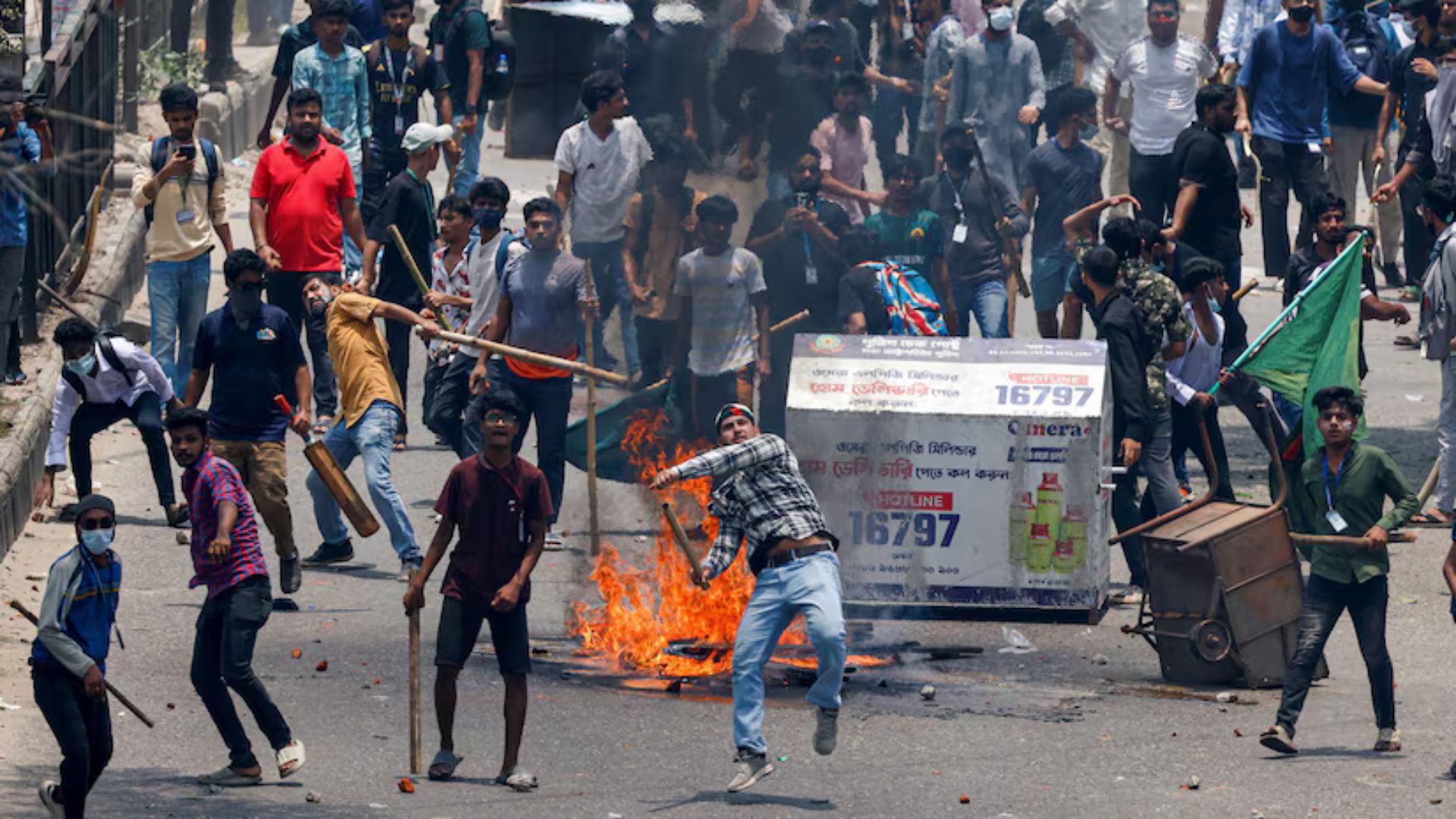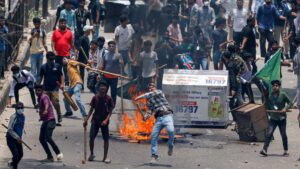Worrying news is coming from Bangladesh about the persecution of the minority Hindus there. The violence that started in the Muslim majority country against Hindu minorities on 5 August with the removal of Prime Minister Sheikh Hasina, may have abated in the big cities, but continues to an extent in the rural areas and small towns. And now that Durga Puja is here, it seems the festival organisers are worried about exercising their right to practice their religion freely. They are facing threats and restrictions like stopping all worshipping when any call to prayer is announced from a nearby mosque. Media reports say that 16 Durga idols have been vandalized. Calls have been made to puja organisers asking them to pay a substantial “tax” to ensure that they can conduct their pujas safely. Hindus are feeling threatened and many are thinking of cancelling their biggest celebration. Even the Buddhist minorities have cancelled their Kathin Chibar Dan festival because of security threats. Amid this, India has expressed concern, with the Ministry of External Affairs spokesperson making it clear that “This is our expectation that the government there will provide security to the minorities. Any incident happening during Durga Puja is not good.”
The Indian government has been repeatedly raising the issue of the safety of the minorities in Bangladesh. As the MEA spokesperson said, “Many times, even at the highest level we have said that minorities should be protected there (in Bangladesh).” Prime Minister Narendra Modi raised the matter with both US President Joe Biden and with the chief adviser to Bangladesh’s interim government, Muhammad Yunus. Of the latter two, Yunus in particular seems apathetic to the minority situation in the country. He has been downplaying reports on the attacks on minorities as an exaggeration. He did the same during his recent visit to the United States. As for the Joe Biden administration, now that it has saved democracy in Bangladesh by installing an unelected man—a favourite with some leaders of the Democratic party—as the caretaker of an unelected interim government, it thinks its duty is done. It is not even ready to call Yunus out on the crisis in Bangladesh. At the same time, the State Department of the Biden administration and its appendage, the United States Commission on International Religious Freedom (USCIRF) are busy pillorying India on its minority report card, which they have marked as “Failed”. The hypocrisy is galling. The USCRIF wants the world’s largest democracy sanctioned and branded as a Country of Particular Concern because of the allegation that it is muzzling its minorities, even though there is no proof of it. In a country of 1.4 billion people, it’s but natural that stray incidents will take place. But what’s important is that the system functions, that there is accountability. But that’s not the case in a country like Bangladesh, which is witnessing the mainstreaming of the radicalized fringe—the fringe that is trying to impose its diktat on the whole country and in the process unleashing the worst kind of forces that are assaulting, torturing and murdering the minorities. One of the excuses being used is that the minorities supported Hasina. If that is the case, since when did having a different political view become a crime? It is apparent by now that plurality does not have a place in Bangladeshi worldview. Under the influence of the clerics, who owe their allegiance to Pakistan, Bangladesh is on its way to transform itself into a second Pakistan. It is a matter of shame that the country that shed blood to retain its own culture and its right to speak its mother tongue—to honour which the UNESCO started the International Mother Language Day—is now looking at Pakistan as the great repository of culture and mores that should be followed.
The problem with Bangladesh is that in its India hatred, it is ready to embrace even China and Pakistan, even though it is India that is its immediate neighbour and it is to India to which it has to turn to, to meet even its smallest needs—from food items to health security. If Bangladesh’s textile industry has been thriving it is primarily because of India, which has been providing it with both power and textile. And this is just one example.
Bangladesh should remember that it’s ultimately about proximity. Neither Pakistan—anyway a bankrupt state—nor China is in any position to be the first responder in case a disaster strikes Bangladesh. How many Bangladeshis can afford a trip to China for treatment? Pakistan anyway does not figure in this case. India is the immediate neighbour and India is the only country that Bangladesh can turn to in times of need. Maldives too tried to show its baby fangs by saying “India Out”, and today President Mohamed Muizzu is visiting “partner” India as a guest—all hatchets buried. This will happen with Bangladesh too. Bangladesh is following a perilous path and is likely to implode sooner than later. There is only one country that can save it, and that is India. But the pre-condition for that is allowing the minorities of Bangladesh to live with dignity. Even otherwise, what sort of a Nobel Peace Prize winner Yunus is, that he cannot ensure this basic minimum? As for the US and bodies like the USCIRF, it is time they sent a stern warning to Yunus and Co, instead of focusing on India. It’s time to end this hypocrisy..








